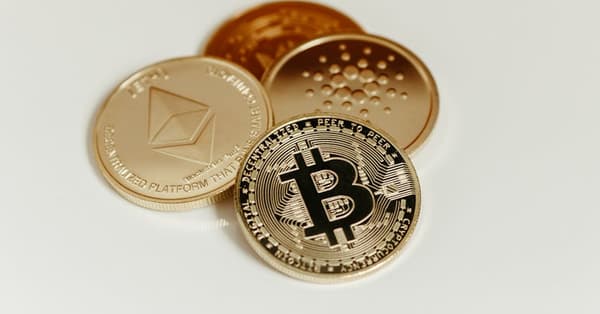BSC vs Ethereum: Which Network Wins on Fees and Speed?
Curious about gas fees? Dive into the debate on BSC and Ethereum's cost and speed. Discover which blockchain truly delivers value for your transactions.
In the constantly evolving crypto landscape, gas fees have become a critical consideration for users. Recently, Ethereum's average gas fees surged to around $30 per transaction, while Binance Smart Chain (BSC) maintained remarkably low fees at approximately $0.50. This stark contrast highlights the significant differences in user experience and adoption between these two blockchains.
The rising popularity of decentralized finance (DeFi) has intensified the scrutiny on transaction costs and speeds. High gas fees can deter users, while faster transactions facilitate smoother operations. So, understanding the nuances between BSC and Ethereum is crucial for both investors and developers.
This article will explore gas fees, transaction speeds, the pros and cons of each blockchain, and their future implications in the crypto ecosystem. Get ready to dive deep!

🎯 KEY INSIGHT
In Q3 2023, Ethereum’s average gas fees peaked at $30, reflecting a staggering 340% increase from the previous year. Conversely, BSC consistently recorded average fees around $0.50.
Gas fees refer to the costs required to execute transactions on blockchain networks. They compensate miners or validators for the computational power needed to process and validate transactions. Essentially, gas fees function as transaction fees for users who want to prioritize their transactions.
Gas fees are calculated based on two components: the gas limit and the gas price. The gas limit is the maximum amount of computational work a user is willing to pay for their transaction, while the gas price is the amount users are willing to pay per unit of gas. On Ethereum, the gas price can vary significantly, influenced by network congestion.
Gas fees have a huge impact on transaction priority. Higher fees can expedite transaction processing during peak times, leading to a better user experience. On the flip side, lower fees may result in slower processing times since miners prioritize transactions with higher fees, which can affect network congestion.
Transaction speed is a vital factor in blockchain usability. On average, Ethereum boasts a block time of 13-15 seconds, while BSC achieves a rapid 3 seconds per block. This substantial difference can significantly impact user experience.

Several factors influence transaction speed, including network traffic and block size. BSC's architecture allows for efficient block generation, while Ethereum can experience slowdowns during high traffic periods. This difference in structure and efficiency makes BSC an appealing choice for those who prioritize speed.
In conclusion, whether you lean towards BSC or Ethereum often comes down to what you're looking for: lower gas fees or the robustness of a more established network. Each has its strengths and weaknesses, and understanding these can help you make informed decisions in your crypto journey.
Tags:
Ready to Make Profitable Crypto Calls?
Check out our proven track record on the leaderboard
View Leaderboard →Related Posts
Is a $2 Billion Bitcoin Bet Opening Doors for Meme Coins?
Discover how a Bitcoin whale's massive investment could signal a new wave of opportunities in the meme coin market. Don't miss out on this insight!
Is MOBOX Leading the Blockchain Gaming Revolution in 2023?
Discover how MOBOX is shaping the blockchain gaming landscape amid a 340% rise in games this year. A must-read for every crypto enthusiast.
Understanding Token Burning on Binance Smart Chain
Curious about BSC's token burning? Discover how it impacts value and investor sentiment in this insightful look at deflationary tokenomics.
The Rise of Meme Coins: What’s Fueling the Surge?
Join us as we explore the explosive growth of meme coins like $PEPE and $DOGE. Discover why they're captivating traders worldwide.
Mastering Japan's Crypto Rules & Meme Coin Trends
Stay ahead in crypto! Explore Japan's new reserve rules and strategies for trading meme coins like SOL. Equip yourself for success in this dynamic market.
Unlocking Arbitrage: Flashloans in the BSC Boom
The Binance Smart Chain is witnessing a flashloan explosion! Discover how traders are capitalizing on new arbitrage opportunities amid rising volatility.